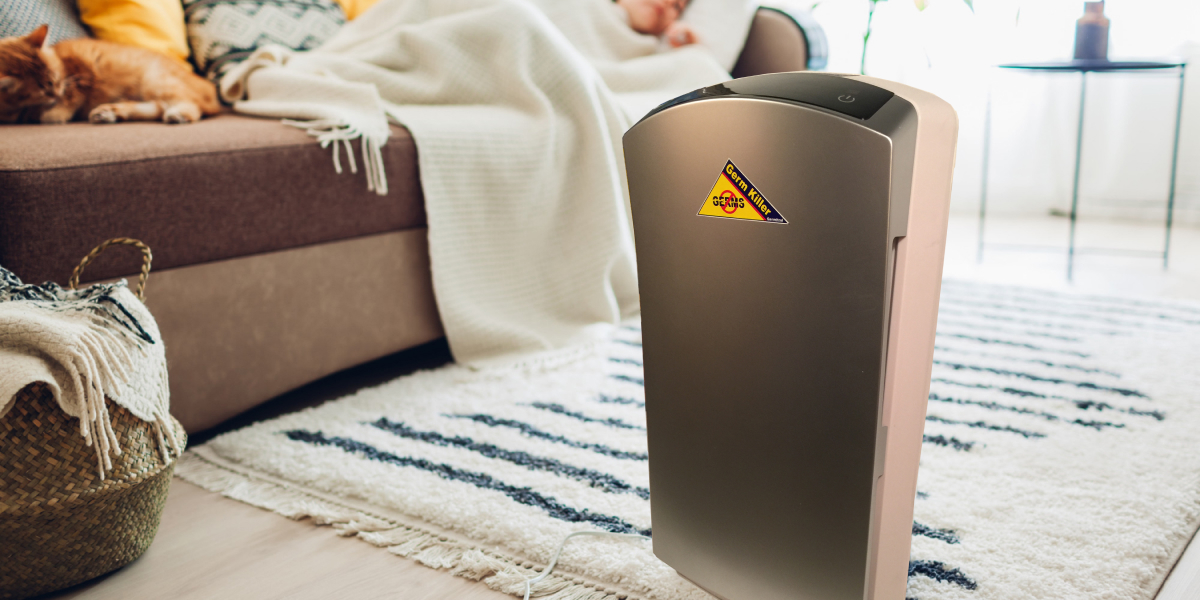Maintaining optimal health in our modern world presents numerous challenges, chief among them being the quality of the air we breathe. Factors such as urbanisation, industrial activities, and daily household routines contribute to the decline in indoor air quality. This silent invasion of pollutants, allergens, and contaminants in our living spaces often remains unnoticed until it manifests as health issues. The significance of air cleaner Singapore surpasses mere comfort; it’s fundamental to our health. As we grapple with these challenges, the discourse surrounding solutions, particularly the role and effectiveness of air purifiers, gains momentum.
Understanding Air Purifiers
Air purifiers are specialised devices designed to enhance indoor air quality by eliminating harmful particles and contaminants. Their primary function is to ensure that the air in our homes, offices, and other indoor spaces remains clean and free from pollutants that can compromise our health. In today’s world, where pollution levels are escalating, the quality of the air we breathe indoors has become a significant concern. While pollution is often associated with the outdoors, indoor air can be equally, if not more, polluted.
The Science Behind Air Purifiers
Air purifier for home work on the principle of capturing or neutralising airborne pollutants. Contrary to common belief, air purifiers don’t just filter the air. While many of them use filters, others purify the air through diverse methods.
The efficiency of an air purifier is often measured using the Clean Air Delivery Rate (CADR), indicating the volume of filtered air delivered within a specific timeframe. Understanding the CADR can aid in selecting a device suitable for the size of your room.
It’s crucial to distinguish between filtering and purifying. Filtering involves trapping particles in a medium such as a HEPA filter, while purifying refers to methods that neutralise or eliminate contaminants without necessarily trapping them, such as UV light or ionisation.
The Need for Air Purifiers
Indoor air can host a myriad of pollutants that compromise its quality:
- Pollen: A prevalent allergen causing seasonal reactions.
- Dust: Various particles such as dead skin cells and mites.
- Pet dander: A concern for pet owners due to shedding skin flecks.
- Smokе: Smokе from various sources can be harmful when inhalеd.
- Volatile Organic Compounds (VOCs): Emitted by paints, varnishеs, and cеrtain clеaning suppliеs.
- Microorganisms: Bacteria, viruses, and mould spores thrive in specific indoor environments, especially in damp conditions.
Exposure to these pollutants can lead to various health issues, exacerbating symptoms for those with allergies or asthma.
How Air Purifiers Function
Air purifiers, like those offered by Germitrol, utilise a range of technologies to ensure clean and safe indoor air:
- HEPA Filters: These trap minuscule particles, preventing their circulation in living spaces.
- Activated Carbon Filters: They absorb gases and odours, beneficial in areas with smokers or high pollution.
- UV Light Purifiers: These purifiers use ultraviolet radiation to reduce airborne pathogens significantly.
- Ionisers: They release charged particles that attract pollutants, causing them to clump together and fall out of the air or stick to surfaces for easier cleaning.
Benefits of Using Air Purifiers
Incorporating an air purifier in your home or office yields numerous benefits:
- Allergen Reduction: Reduces symptoms for those with seasonal allergies or pet-related sensitivities.
- Respiratory Health: Decreases the risk of respiratory ailments by reducing exposure to pollutants.
- Odour Neutralisation: Helps eliminate lingering odours, keeping your space smelling fresh.
- Protection Against Pathogens: Adds an extra layer of protection against harmful pathogens for peace of mind.
Considerations When Purchasing an Air Purifier
If considering an air purifier, these factors can guide your purchase:
- Room Size and Capacity: Match the purifier’s capacity with your room size for optimal performance.
- Filter Replacement: Consider filter longevity and replacement costs.
- Noise Levels: Essential for bedrooms or quiet spaces, ensure the purifier’s noise level aligns with your comfort.
- Energy Consumption: Choose an energy-efficient model for environmental and financial benefits.
- Certifications: Look for recognised certifications for assurance of quality and efficacy.
Conclusion
Air purifiers for homes use ultraviolet technology effectively to eliminate germs, bacteria, and pollutants, ensuring cleaner and healthier indoor air. They offer multiple benefits, from reducing allergens to neutralising odours and combatting airborne micro-organisms. A comprehensive approach to indoor air quality, incorporating UV technology, regular cleaning, good ventilation, and preventive measures, ensures the air we breathe indoors remains as clean and healthy as possible.

